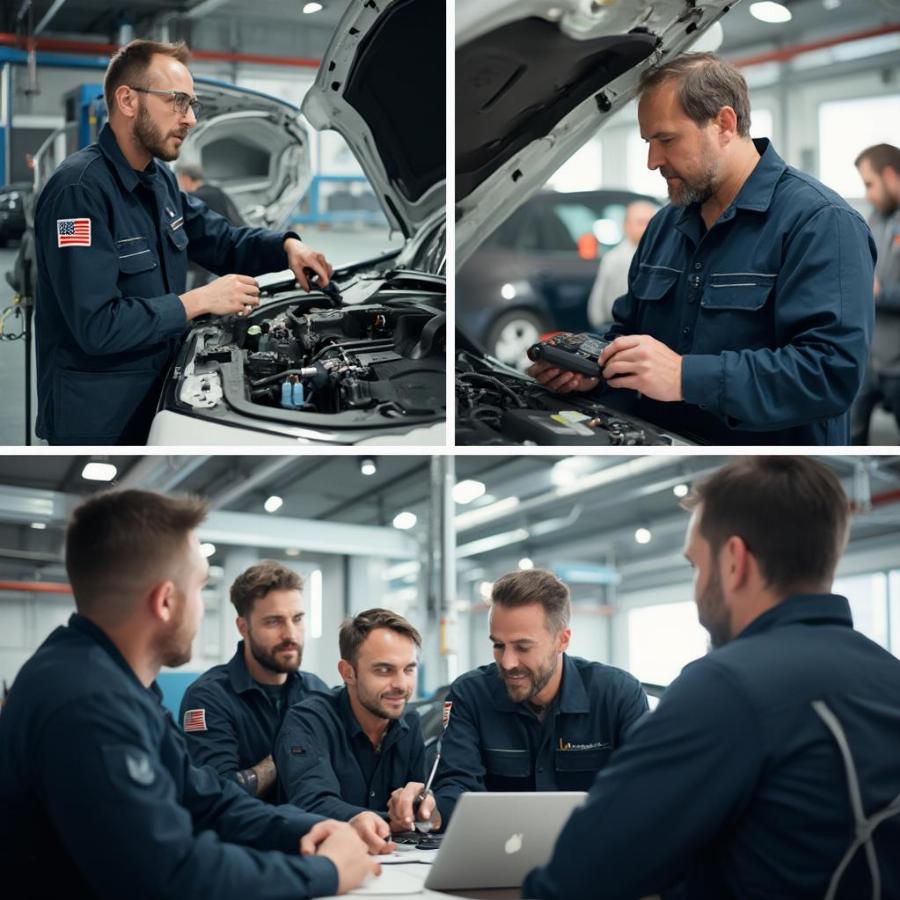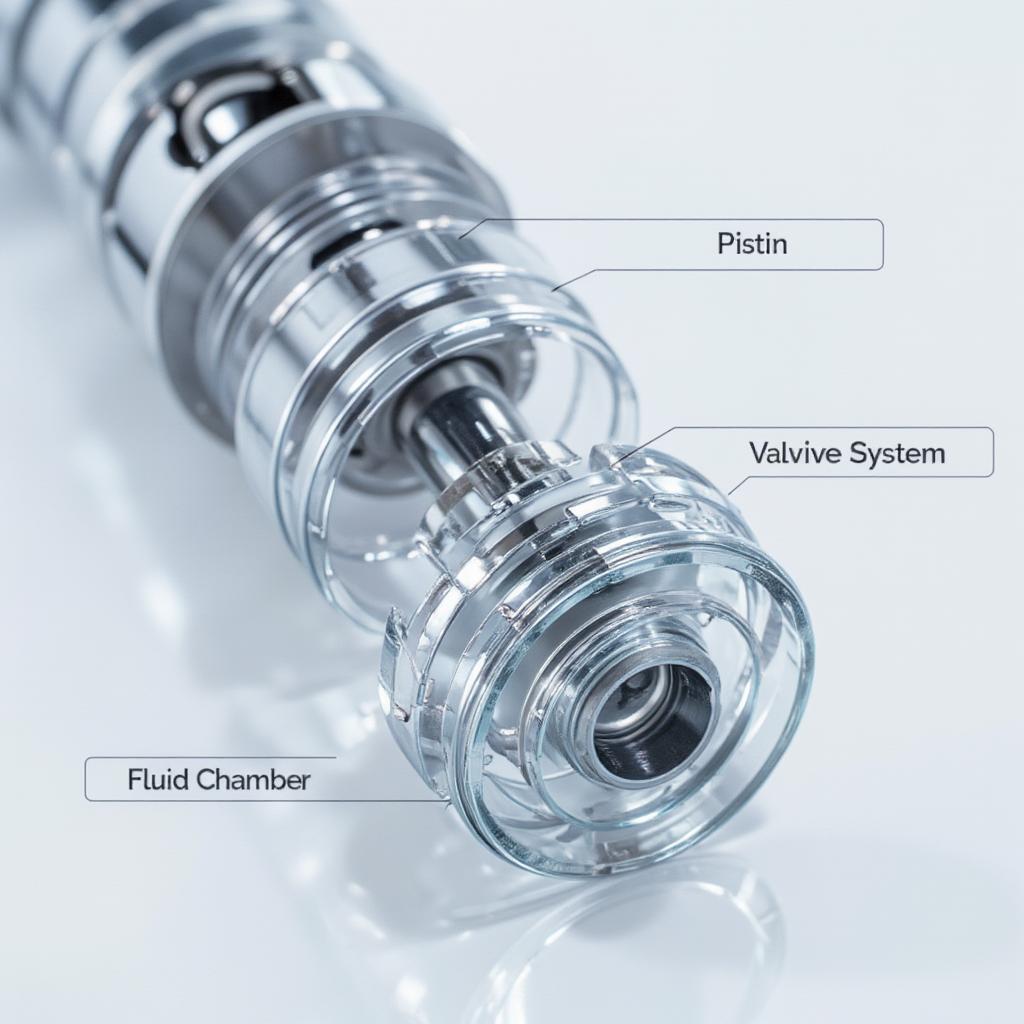Automotive Mechanic Education and Training: Your Path to a Successful Career

Automotive Mechanic Education And Training is crucial for anyone aspiring to a thriving career in the automotive industry. The demand for skilled mechanics is consistently high, and with the constant evolution of vehicle technology, proper training is more important than ever. This article will guide you through the essential aspects of automotive mechanic education and training, providing you with the knowledge you need to embark on this rewarding career path.
Getting Started with Automotive Mechanic Education and Training
Several educational pathways can lead you to a career as an automotive mechanic. These range from vocational high school programs and community college courses to specialized automotive technical schools and apprenticeships. Each option offers unique benefits and caters to different learning styles. Choosing the right path for you is the first step toward a successful automotive career.
Vocational high schools often introduce students to basic automotive principles, providing a solid foundation for further education. Community colleges offer more comprehensive programs, often leading to an associate’s degree. These programs typically combine classroom instruction with hands-on experience in well-equipped labs. Automotive technical schools focus specifically on automotive technology, offering specialized training in areas like diagnostics, electronics, and alternative fuel vehicles. Apprenticeships provide valuable on-the-job training under the guidance of experienced mechanics, allowing you to earn while you learn.
Choosing the Right Automotive Mechanic Education and Training Program
When selecting an automotive mechanic education and training program, consider factors like program accreditation, curriculum, faculty experience, and facilities. Accreditation ensures the program meets industry standards, enhancing your credibility and job prospects. A comprehensive curriculum covering various automotive systems and technologies is essential for a well-rounded education. Experienced faculty members can provide valuable insights and mentorship. State-of-the-art facilities with modern equipment are crucial for hands-on learning and staying current with industry trends.
Beyond the basics, exploring specialized certifications can significantly boost your career. Certifications in areas like advanced driver-assistance systems (ADAS), electric vehicle (EV) repair, and alternative fuel vehicle technology can set you apart from the competition and open doors to more specialized and higher-paying roles.

Essential Skills for Automotive Mechanics
Beyond technical knowledge, successful automotive mechanics need strong problem-solving, critical thinking, and communication skills. Diagnosing complex vehicle issues requires analytical thinking and the ability to interpret data from diagnostic tools. Effectively communicating with customers and colleagues is essential for explaining repairs and providing excellent service. Furthermore, the ability to adapt to new technologies and continuously learn is paramount in this ever-evolving field.
“The automotive industry is constantly changing,” says Dr. James Miller, a leading automotive technology expert. “Mechanics need to be adaptable and eager to learn new skills throughout their careers.”

The Future of Automotive Mechanic Education and Training
The future of automotive mechanic education and training is intertwined with the rapid advancements in vehicle technology. Electric vehicles, autonomous driving, and connected car technologies are transforming the automotive landscape, creating new challenges and opportunities for mechanics. Staying abreast of these trends and acquiring the necessary skills to service these advanced vehicles will be critical for future success.
“Embracing lifelong learning is key for automotive mechanics,” adds Dr. Susan Lee, an automotive engineering professor. “The future of this profession lies in the ability to adapt to and master the latest technologies.” The rise of electric and autonomous vehicles requires mechanics to develop expertise in high-voltage systems, sensor technology, and software diagnostics.

Conclusion
Automotive mechanic education and training provide the foundation for a rewarding career in a dynamic industry. By selecting the right educational path, acquiring essential skills, and staying current with technological advancements, you can position yourself for success in this exciting field. Automotive mechanic education and training is an investment in your future, opening doors to a fulfilling and in-demand profession.
FAQs about Automotive Mechanic Education and Training
-
What qualifications do I need to become an automotive mechanic? A high school diploma or GED is typically required, followed by post-secondary education or training through vocational schools, community colleges, or apprenticeships.
-
How long does it take to become an automotive mechanic? The duration of training varies depending on the chosen program. It can range from several months to two years or more for associate’s degrees.
-
Is automotive mechanic a good career choice? Yes, skilled automotive mechanics are in high demand, and the profession offers good job security and earning potential.
-
What is the job outlook for automotive mechanics? The Bureau of Labor Statistics projects steady job growth for automotive service technicians and mechanics in the coming years.
-
What are some important qualities of a good automotive mechanic? Essential qualities include strong problem-solving skills, attention to detail, mechanical aptitude, and good communication skills.
-
What is the difference between an automotive mechanic and an automotive technician? While the terms are often used interchangeably, technicians typically specialize in more complex diagnostic and repair work, often requiring advanced certifications.
-
How can I stay up-to-date with the latest automotive technology? Continuing education courses, industry publications, and manufacturer training programs are excellent resources for staying current with automotive advancements.
-
Do I need certifications to work as an automotive mechanic? While not always mandatory, certifications from organizations like ASE (National Institute for Automotive Service Excellence) demonstrate competency and can enhance job prospects.
-
What are the typical working conditions for automotive mechanics? Mechanics often work in repair shops or dealerships, which can be physically demanding environments involving exposure to grease, noise, and potentially hazardous materials.




